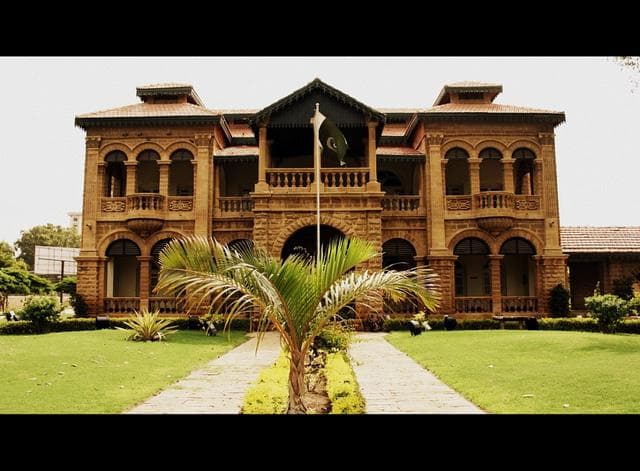
Quaid-e-Azam House Museum
Step into the former residence of Muhammad Ali Jinnah, Pakistan's founder. Explore his personal belongings and admire colonial architecture.

Highlights
Must-see attractions

Social
From TikTok & Reddit
Best Time
Fewer crowds, more peaceful

Quaid-e-Azam House Museum
Best Time
Fewer crowds, more peaceful

Highlights
Must-see attractions
Step into the former residence of Muhammad Ali Jinnah, Pakistan's founder. Explore his personal belongings and admire colonial architecture.
"A well-kept historical place where we felt immersed in the era of our beloved Quaid-e-Azam."
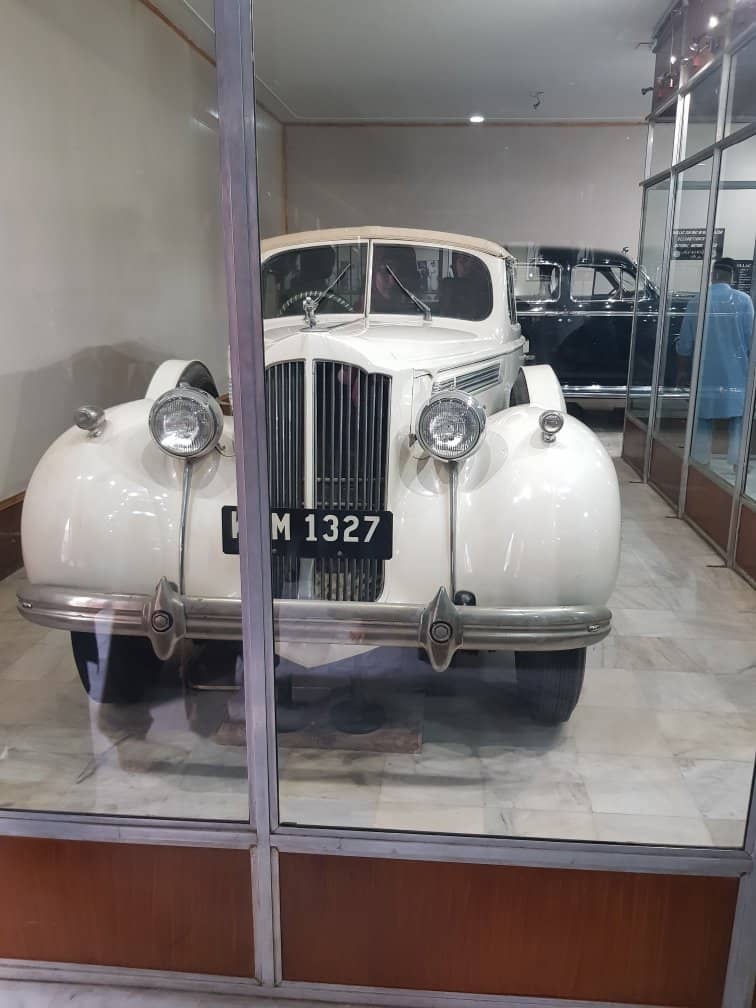
🚫 No Photography Inside
Remember, photos are strictly prohibited inside the museum. Enjoy the experience with your eyes!
🚶♀️ Short Guided Tours
Tours are brief (around 10 mins). Take your time to explore the grounds and soak in the history.

Highlights
Discover the most iconic attractions and experiences
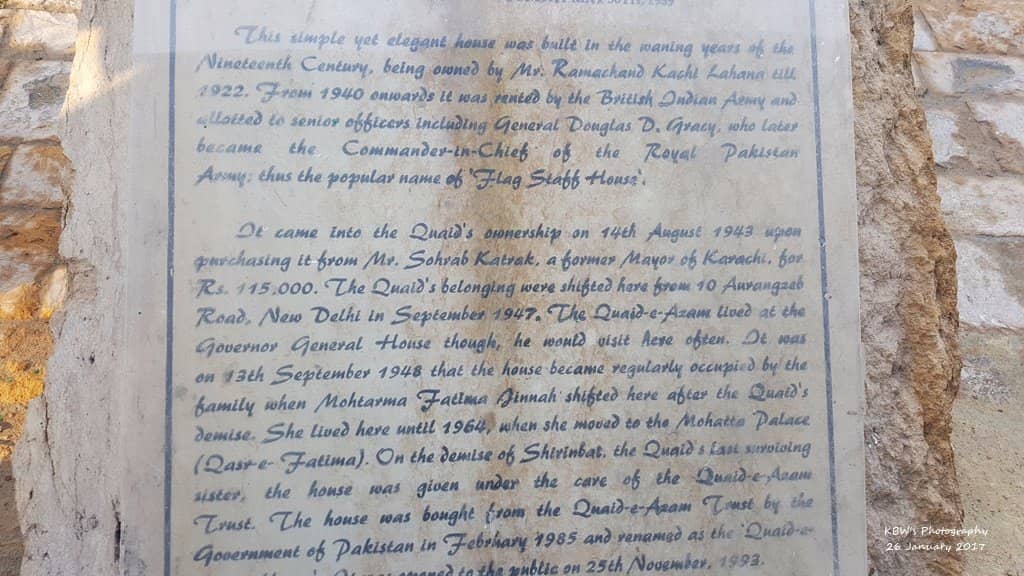
Jinnah's Personal Belongings
Interior rooms
See original furniture, clothing, books, and personal items of Muhammad Ali Jinnah, offering a glimpse into his life.
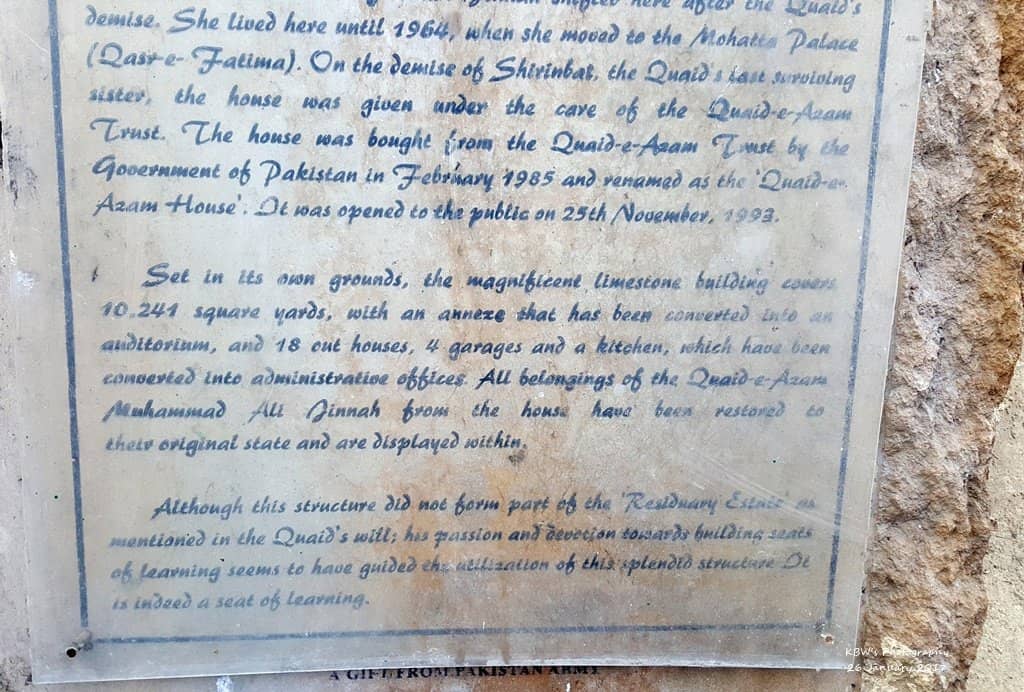
Colonial Architecture
Exterior and interior
Admire the elegant blend of British colonial and local styles, featuring spacious verandahs and high ceilings.
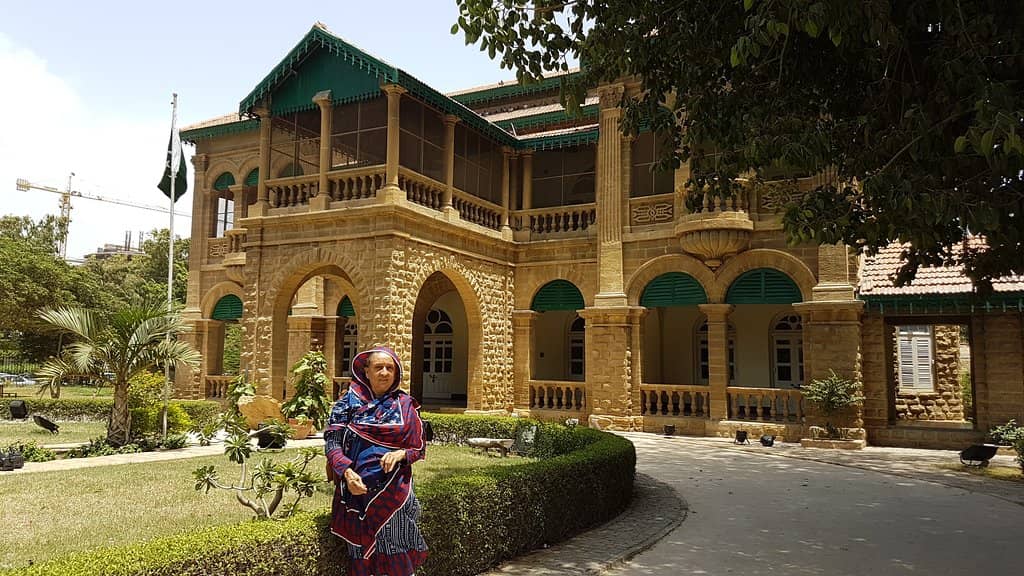
Pakistan Movement Memorabilia
Walls throughout the museum
View rare photographs, letters, and documents from the pivotal Pakistan Movement era.

Lush Gardens
Exterior grounds
Stroll through well-maintained gardens, a peaceful escape offering a perfect spot for reflection.
Plans like a pro.
Thinks like you
Planning Your Visit
Respectful Visit Essential
Timing Your Visit
Best Times
Insider Tips
from TikTok, Instagram & Reddit
🚫 No Photography Inside
Remember, photos are strictly prohibited inside the museum. Enjoy the experience with your eyes!
🚶♀️ Short Guided Tours
Tours are brief (around 10 mins). Take your time to explore the grounds and soak in the history.
🚗 Parking Challenges
Parking can be tricky; you might need to park on the road. Plan accordingly.
🏛️ Respect the Heritage
This is a national monument. Observe the dignity of the place and follow all instructions.
Tips
from all over the internet
🚫 No Photography Inside
Remember, photos are strictly prohibited inside the museum. Enjoy the experience with your eyes!
🚶♀️ Short Guided Tours
Tours are brief (around 10 mins). Take your time to explore the grounds and soak in the history.
🚗 Parking Challenges
Parking can be tricky; you might need to park on the road. Plan accordingly.
🏛️ Respect the Heritage
This is a national monument. Observe the dignity of the place and follow all instructions.
🗓️ Closed on Wednesdays
Plan your visit accordingly, as the museum is closed every Wednesday.
What Travellers Say
Reviews Summary
Visitors praise the Quaid-e-Azam House Museum for its meticulous preservation and the intimate glimpse it offers into the life of Pakistan's founder. The colonial architecture and serene gardens are also highlights. However, some find the guided tour too short and note the inconvenience of limited parking and the strict no-photography rule inside.
"The place is lovely. Quaid did have a good taste for everything. Entrance is free. The tour is guided but too short. 10 minutes only. You don't get time to feel the place and appreciate the beauty of the contents. The tour time should be doubled at least. No photography allowed inside. No proper Parking lot. Had to park on the road."
incognito ali
"🏛️ Quaid-e-Azam Residency (Flag Staff House) — Karachi
📍 Location:
Located in the civil lines area of Karachi, it is a serene and elegant colonial-era bungalow surrounded by lush green lawns and a peaceful environment.
---
🕰️ Historical Background:
The building was constructed in the 19th century during British colonial rule and was initially used by British officials.
Muhammad Ali Jinnah moved into this house after Pakistan's independence and lived here from 1944 till his death in 1948.
It is sometimes referred to as the "last official residence" of the Quaid-e-Azam.
---
🖼️ What Makes It Mind-Blowing:
1. Authentic Preservation:
The house has been meticulously preserved to reflect the original style from Jinnah's time.
You'll see his original furniture, clothing, books, and even his walking stick and reading glasses.
2. Elegant Colonial Architecture:
The architecture is a fusion of British colonial and local styles, with spacious verandahs, wooden floors, and tall ceilings.
The ambiance still carries the vintage charm of the 1940s.
3. Personal Belongings of Jinnah:
His bedroom, drawing room, study, and dining room are open for viewing.
A glimpse into his personal taste and lifestyle — simple, sophisticated, and minimal.
4. Historical Documents & Pictures:
Walls are adorned with rare black-and-white photographs, letters, and documentation from the Pakistan Movement.
You can feel the history come alive as you walk through the rooms.
---
🏞️ Lush Garden & Peaceful Surrounding:
The house is surrounded by a well-maintained garden, perfect for photography, quiet walks, or reflection.
It's a peaceful escape right in the middle of bustling Karachi.
---
🎖️ National Heritage Status:
It is a protected national monument under the care of the Pakistan Department of Archaeology and Museums.
Schools often bring children here to learn about the legacy of Pakistan's founder.
---
🔎 Interesting Fact:
Although people often confuse it with Quaid-e-Azam's Mausoleum, this is his actual residence, not his burial place.
Locals call it “Flag House” because a flagpole is always raised here, symbolizing the nation he founded.
🕰️ Visiting Hours:
Morning: 9:00 AM – 1:00 PM
Afternoon: 2:00 PM – 4:00 PM
🛑 Closed for break: 1:00 PM – 2:00 PM
---
📅 Weekly Schedule:
✅ Open: Sunday, Monday, Tuesday, Thursday, Friday, Saturday
❌ Closed: Wednesday only"
Mehreen Zia
"A very well-kept historical place where we felt immersed in the era of our beloved Quaid-e-Azam Muhammad Ali Jinnah. The house is beautifully preserved and managed. Quaid’s perfumes, furniture, Fatima Jinnah’s room, drawing room, and crockery all reflect his refined taste and sense of aesthetics.
The guide gave us a detailed tour and shared valuable insights. The staff was cooperative and welcoming.
Inside the house, photography is strictly prohibited, and we followed this rule with respect.
It was an overwhelming experience, especially for our kids.
Highly recommended for anyone who wishes to glimpse into the personal life of our great leader. Please observe the dignity of the place and follow the visiting instructions."
Faisal Arshad
What People Like
What People Dislike
Frequently Asked Questions
🚇 🗺️ Getting There
The museum is located in the Civil Lines area of Karachi. You can reach it by taxi or ride-sharing services. Public transport options might be available, but taxis offer more direct access.
Parking can be challenging, and you may need to park on the road nearby. It's advisable to factor this into your travel plans.
The museum is typically open from 9:00 AM to 1:00 PM and 2:00 PM to 4:00 PM, with a break between 1:00 PM and 2:00 PM. It is closed on Wednesdays.
Information on specific accessibility features is limited, but the grounds are generally flat. It's recommended to contact the museum directly for detailed accessibility information.
Yes, photography of the exterior and the gardens is generally allowed, offering great photo opportunities.
🎫 🎫 Tickets & Entry
The entrance to the Quaid-e-Azam House Museum is generally free, making it an accessible historical site for everyone.
No advance booking is typically required for entry to the museum. You can usually walk in during operating hours.
Yes, guided tours are offered, but they are quite brief, usually around 10 minutes.
While the guided tour is short, take your time to explore the rooms and grounds afterward to fully appreciate the historical significance and Jinnah's personal life.
No, photography is strictly prohibited inside the Quaid-e-Azam House Museum.
🎫 🏛️ Onsite Experience
Inside, you'll find Jinnah's original furniture, clothing, books, personal belongings, and historical documents from the Pakistan Movement.
This was the actual residence of Muhammad Ali Jinnah, the founder of Pakistan, from 1944 until his death in 1948. It offers a direct connection to his life and the nation's history.
The house features elegant colonial-style architecture with spacious verandahs, high ceilings, and teak wood interiors, reflecting a blend of British and local influences.
Occasionally, events like dialogues or cultural gatherings are hosted at the museum, offering a unique experience.
Visitors often describe the atmosphere as serene and immersive, allowing them to feel transported back to Jinnah's era.
📸 📸 Photography
Photography is allowed in the exterior areas, including the gardens and the facade of the house.
Photography is prohibited inside to preserve the artifacts and maintain the sanctity of the historical exhibits.
The well-maintained gardens and the grand colonial facade offer excellent opportunities for memorable photographs.
Always respect the 'no photography' signs inside and be mindful of other visitors when taking exterior shots.
Drone usage is generally not permitted in such historical and residential areas without explicit permission from authorities.
For Different Travelers
Tailored advice for your travel style
👨👩👧 Families with Kids
Encourage your children to observe the details of Jinnah's life and the colonial architecture. The gardens provide a space for them to move around and reflect after the indoor tour. It's a great opportunity to teach them about national heroes and heritage in a respectful environment.
🏛️ History Enthusiasts
Pay close attention to the details in Jinnah's personal effects and the historical context provided by the exhibits. The colonial architecture itself is a testament to a significant period in the subcontinent's history. Consider researching Jinnah's life and the Pakistan Movement beforehand to enhance your understanding and appreciation of the museum's contents.
📸 Photography Buffs
Capture the essence of this historical landmark by focusing on its facade, architectural details, and the serene garden setting. Early morning or late afternoon light can enhance the visual appeal of the building and its surroundings. Remember to be respectful of the site and other visitors while taking photos.
Deep Dives
In-depth insights and expert knowledge
The Legacy of Muhammad Ali Jinnah
Inside, you'll find Jinnah's original furniture, his clothing, books, and even personal effects like his reading glasses and walking stick. The rooms, including his bedroom, drawing room, and study, are open for viewing, allowing you to imagine the man behind the monumental political figure. The walls are adorned with historical documents, letters, and rare photographs from the Pakistan Movement, providing context to the nation's struggle for independence.
This preservation effort ensures that future generations can connect with their history and understand the vision and dedication of their founding father. It’s a place that evokes a sense of national pride and historical reflection.
Architectural Charm and Ambiance
The spacious layout and the thoughtful preservation of the original decor create an immersive experience. Visitors often remark on the serene ambiance, which feels like stepping back into the 1940s. The well-maintained gardens surrounding the house further enhance its charm, offering a peaceful retreat from the city's hustle and bustle.
This architectural style not only reflects the aesthetics of the time but also provides a glimpse into the living standards of prominent figures during the British Raj. The house's enduring beauty makes it a significant heritage site in Karachi.
Visiting as a Tourist in Karachi
While the museum itself is a highlight, consider combining your visit with other nearby historical attractions in Karachi. The TDF Ghar, Frere Hall, and Mohatta Palace are often recommended by travelers as excellent complements to understand the city's rich heritage.
Remember that photography is not allowed inside, so focus on absorbing the details and the historical narrative. The brief guided tour is informative, but feel free to linger and explore the grounds at your own pace to fully appreciate the significance of this national monument.

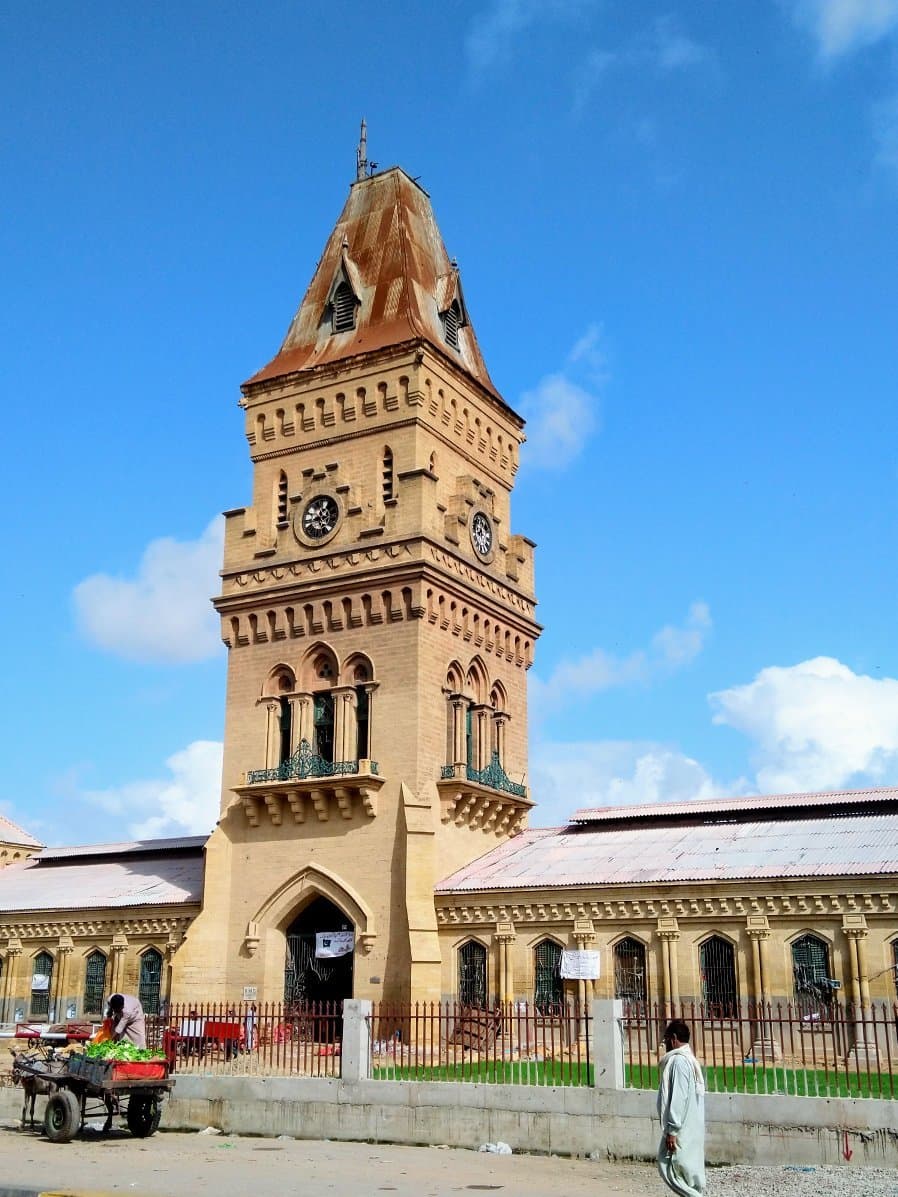


Social
from TikTok, Instagram & Reddit